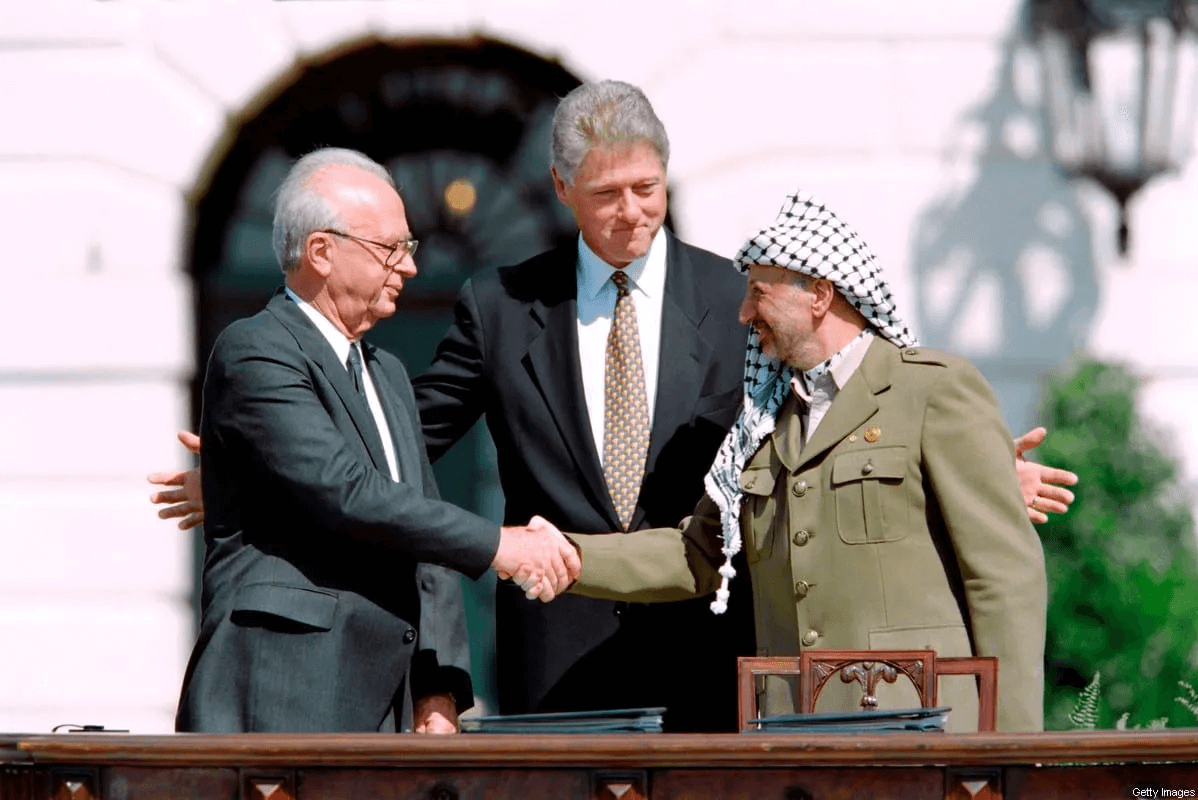After 3 Decades, Everything Related to Oslo has Died, Except Security Cooperation
Motasem A Dalloul | 17 September 2022
After almost 30 years, the Oslo Accords have brought Palestinians nothing but more destruction, killing, land expropriation, the desecration and Judaisation of holy sites and settlement expansion.
Oslo established the Palestinian Authority (PA) -deemed the sole representatives of the Palestinian people, and provided a platform for negotiating borders, governance and security arrangements.
Oslo also gave the PA control over the occupied territories, however this was divided into three areas – Area A (18 per cent), where the PA should have full administrative and security control; Area B (22 per cent), where the PA has only administrative control, and Area C (60 per cent) which is under Israel's full administrative and security control.
In addition to this, the occupation was given full control over the Palestinian economy, as well as crossings for people and goods. Israel did not recognise Palestinian sovereignty over even an inch of the Palestinian sea, land and air, putting Palestinians under the mercy of Israel.
While the deal, which was signed in the US in 1993, was said to have been a breakthrough in relations between Palestinians and the occupation state of Israel. The needs of the occupation were greater than the rights of the Palestinian peoples to live a decent live.
Palestinians were even denied the right to have their own registry; all births, marriages and deaths must be registered with Israel so IDs can be issued.
However, Israel did not respect its commitments under the Oslo Accords and maintained full control, not only over 60 per cent of the West Bank, but over all the occupied territories. Israeli occupation forces enter the occupied West Bank areas, A, B and C, whenever they desire, and arrest and kill Palestinians.
They also demolish Palestinian homes leaving Palestinians homeless and unable to obtainthe plannin licences required to rebuild their properties.
Europe and the UK's weak words have, understandably, failed to lead to a lasting peace or for Palestinians to obtain their rights under international law. Instead, they have helped and pushed the PA to become means to inflict further pain on Palestinians.
Through the years, Israel has used the Oslo Accords and subsequent deals to justify its move to further strengthen the occupation and expand illegal settlements in the occupied territories.
The Palestinian people have tried to abolish the Oslo Accords, but this led to more destruction, killing, land expropriation, the desecration and judaisation of holy sites and settlement expansion.
Instead, the PA increased its security cooperation, this means they work hand in hand with the Israeli occupation against the Palestinian resistance and Palestinian activists, including peaceful actions such as sit-ins and marches.
Though PA President Mahmoud Abbas has repeatedly pledged that his government will pull out of Oslo and suspend security coordination with the occupation state, to date no such action has been taken. In fact, Abbas' position at the helm of the Palestinian political circles is dependent on his ability to comply with the occupation's demands.
Security in Israel and across the occupied Palestinian territories lies in Israel's hands. The Oslo Accords are clear on this. "Israel has sole criminal jurisdiction over […] offenses committed in the Territory by Israelis; and the Palestinian authorities shall not arrest Israelis or place them in custody," it says.
Almost three decades after the signing of the Oslo Accords, it has become very clear that the only "sacred" term of the Accords is security cooperation with the occupation. All other terms and agreements are mute. The Accords are dead, but security coordination with the occupation and its continued subjugation of Palestinians is very much ongoing across the occupied territories and within the so-called 'Green Line'.
Motasem A Dalloul is MEMO's correspondent in the Gaza Strip.
This article was originally published on Middle East Monitor.
Views in this article are author’s own and do not necessarily reflect CGS policy.
